Proceedings of the 7th International Conference
on Control, Dynamic Systems, and Robotics (CDSR'20)
November 9 - 11, 2020 | Niagara Falls, Canada
Virtual Conference
The keynote information for the 7th International Conference of Control, Dynamic Systems, and Robotics (CDSR'20) is as follows:

Dr. Perry Y. Li
University of Minnesota, USA
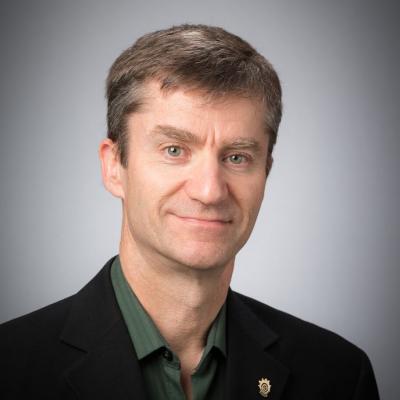
Dr. Gary M. Bone
McMaster University, Canada
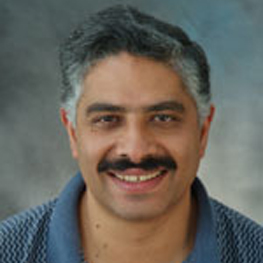
Dr. Medhat Moussa
University of Guelph, Canada
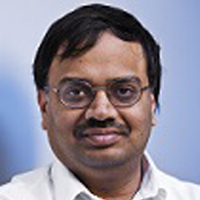
Dr. Murti Salapaka
University of Minnesota, USA
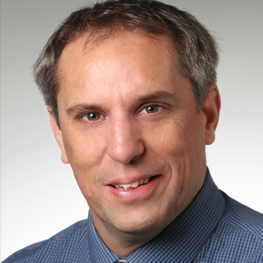
Dr. Robert Langlois
Carleton University, Canada
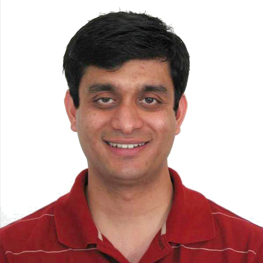
Dr. Aditya Mahajan
McGill University, Canada
CDSR'20 Keynote Speakers

Dr. Perry Y. Li
University of Minnesota, USA
Perry Li is Professor of Mechanical Engineering at the University of Minnesota. His research interests are in design, control and sensing of mechatronics and fluid power systems. Current applications include improving power-train efficiency of on-road and off-road vehicles, compressed air energy storage for renewable energy, human interactive robots and underwater vehicles. Between 2006-2013, he was the founding deputy director for the NSF Engineering Research Center for Compact and Efficient Fluid Power (CCEFP). He was the recipient of the 2002 Japan/USA Symposium on Flexible Automation. Prior to joining the University of Minnesota in 1997, he was on the research staff of Xerox Corporate Research. Dr. Li received his PhD in Mechanical Engineering from the University of California, Berkeley; his MS in Biomedical Engineering from Boston University; and MA in Electrical and Information Sciences from Cambridge University, England.
Topic of Keynote:
Combining Hydraulic and Electric Actuations To Improve Efficiency and Control Effectiveness for Off-Road Mobile Machines

Dr. Gary M. Bone
McMaster University, Canada
Gary M. Bone received the B.Sc. (Ap.Sc.) degree in mechanical engineering from Queen’s University, Canada, and the M.Eng. and Ph.D. degrees in mechanical engineering from McMaster University, Canada, in 1986, 1988, and 1993, respectively.
He joined the Faculty of Engineering, McMaster University, in 1994, where he is currently a Professor with the Department of Mechanical Engineering. His current research interests include robot design and control; collaborative robots (Cobots); 3D machine vision for robots; robot learning from demonstration; soft pneumatic actuators; hybrid pneumatic-electric actuators; and advanced control algorithms for pneumatic and hybrid actuators.
Topic of Keynote: Advanced Robot Design and Control Strategies for Human-Robot Cooperation

Dr. Medhat Moussa
University of Guelph, Canada
Professor Medhat Moussa received his PhD in Systems design Engineering from the University of Waterloo, MASc in from the Université de Moncton, and BSc. from American University in Cairo in 1996, 1992, and 1987 respectively. In 2000, he joined the University of Guelph’s School of Engineering, where he is now a full professor. Professor Moussa’s research is focused on developing robots that sense, learn, and act in non-structured, uncertain, and cluttered environments. He has an extensive publication record in robotics grasping, machine learning, machine vision, and Human-Robot Interaction. He holds several US and international patents in machine learning. He maintains strong collaborative relationships with various industry partners.
Topic of Keynote:
Learning to grasp for robotics applications in uncertain environments

Dr. Murti Salapaka
University of Minnesota, USA
Professor Salapaka is in the area of Control and Dynamical Systems. He obtained his Bachelors degree in Mechanical Engineering from Indian Institute of Technology, Madras in 1991. He obtained his Masters and PhD. degrees from University of California, Santa Barbara in the years 1993 and 1997 respectively. He was at Electrical Engineering department at Iowa State University from1997-2007. He is currently a faculty in the Electrical and Computer Engineering Department at University of Minnesota at Minneapolis where he holds the Vincentes-Hermes Luh Chair. He is the recipient of the NSF CAREER Award for the year 1998 and is a IEEE Fellow. His research interests span, controls and systems theory and its applications to nanotechnology, single molecule physics and power systems.
Topic of Keynote: Reconstruction of interconnectedness in networks of dynamical systems based on passive observations

Dr. Robert Langlois
Carleton University, Canada
Rob Langlois is a Professor in the Department of Mechanical and Aerospace Engineering and the Associate Dean, Student Success in the Faculty of Engineering and Design at Carleton University, Ottawa, Canada. He received his Engineering Diploma from St. Francis Xavier University, Antigonish, Nova Scotia, Canada in 1987; and BASc, MASc, and PhD degrees from Queen’s University, Kingston, Canada in 1990, 1991, and 1996, respectively. Upon graduation, he gained industrial experience as the Senior Dynamicist and subsequently Manager of Dynamic Analysis at Indal Technologies Inc. (now Curtiss-Wright Indal Technologies), a leader in shipboard aircraft handling systems. Upon joining Carleton University in 2001 he founded the Applied Dynamics Laboratory. Since that time, his research has involved theoretical, computational, and experimental components focused on practical safety-related problems related to shipboard aircraft operation, human performance at sea, neonatal patient transport, vehicle dynamics, cost-accessible flight simulation, and high-speed craft suspension seats. Dr. Langlois has an extensive publication record and is the recipient of four best-paper awards.
Topic of Keynote: Mitigating the Impact of High-Speed Craft

Dr. Aditya Mahajan
McGill University, Canada
Aditya Mahajan is Associate Professor of Electrical and Computer Engineering at McGill University, Montreal, Canada. He received the B.Tech degree in Electrical Engineering from the Indian Institute of Technology, Kanpur, India in 2003 and the MS and PhD degrees in Electrical Engineering and Computer Science from the University of Michigan, Ann Arbor, USA in 2006 and 2008. From 2008 to 2010, he was postdoctoral researcher in the department of Electrical Engineering at Yale University, New Haven, CT, USA. From 2016 to 2017, he was a visiting scholar at the University of California, Berkeley.
He is the recipient of the 2015 George Axelby Outstanding Paper Award, the 2016 NSERC Discovery Accelerator Award, the 2014 CDC Best Student Paper Award (as supervisor), and the 2016 NecSys Best Student Paper Award (as supervisor). His principal research interests include decentralized stochastic control, team theory, reinforcement learning, multi-armed bandits and information theory.
Topic of Keynote: Approximate planning and learning for partially observed systems